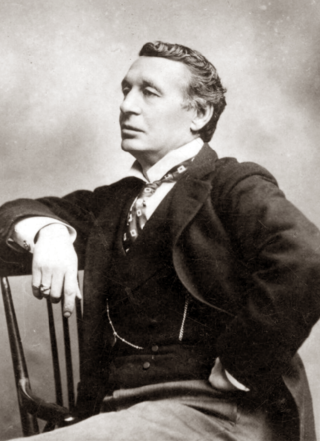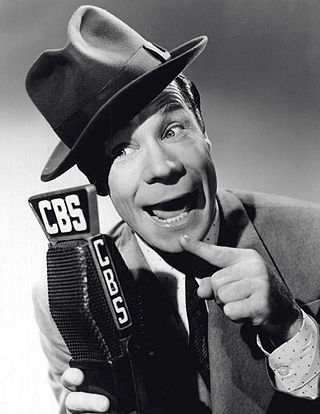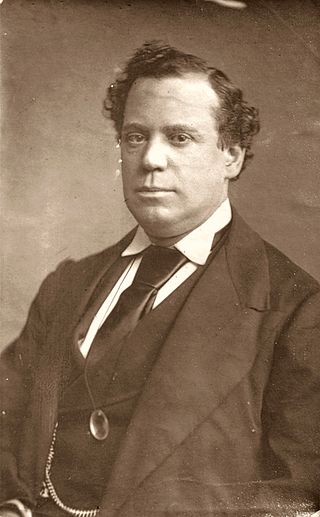
William Abbot or Abbott was an English actor, and a theatrical manager, both in England and the United States.

Charles Mathews was an English theatre manager and comic actor, well known during his time for his gift of impersonation and skill at table entertainment. His play At Home, in which he played every character, was the first monopolylogue and the defining work in the genre.

Frederick George Hobson, known as Fred Leslie, was an English actor, singer, comedian and dramatist.

Edmund Kean was a celebrated British Shakespearean stage actor born in England, who performed, among other places, in London, Belfast, New York, Quebec, and Paris. He was known for his short stature, tumultuous personal life, and controversial divorce.

Charles Francis Adams Sr. was an American historical editor, writer, politician, and diplomat. As United States Minister to the United Kingdom during the American Civil War, Adams was crucial to Union efforts to prevent British recognition of the Confederate States of America and maintain European neutrality to the utmost extent. Adams also featured in national and state politics before and after the Civil War.

John Liston, English comedian, was born in London.

Joseph Jefferson III, commonly known as Joe Jefferson, was an American actor. He was the third actor of this name in a family of actors and managers, and one of the most famous 19th century American comedians. Beginning as a young child, he continued as a performer for most of his 76 years. Jefferson was particularly well known for his adaptation and portrayal of Rip Van Winkle on the stage, reprising the role in several silent film adaptations. After 1865, he created no other major role and toured with this play for decades.

Edwin Adams was an American stage actor, considered to have been one of America's best light comedians.

Sir Charles Wyndham, néCharles Culverwell, was an English actor and theatre proprietor. Wyndham's Theatre in London is named after him, and he also built the New Theatre nearby.

Joseph Evans Brown was an American actor and comedian, remembered for his friendly screen persona, comic timing, and enormous elastic-mouth smile. He was one of the most popular American comedians in the 1930s and 1940s, with films like A Midsummer Night's Dream (1935), Earthworm Tractors (1936), and Alibi Ike (1935). In his later career Brown starred in Some Like It Hot (1959), as Osgood Fielding III, in which he utters the film's famous punchline "Well, nobody's perfect."

John Lawrence Toole was an English comic actor, actor-manager and theatrical producer. He was famous for his roles in farce and in serio-comic melodramas, in a career that spanned more than four decades, and the first actor to have a West End theatre named after him.

Thomas Souness Hamblin was an English actor and theatre manager. He first took the stage in England, then immigrated to the United States in 1825. He received critical acclaim there, and eventually entered theatre management. During his tenure at New York City's Bowery Theatre he helped establish working-class theatre as a distinct form. His policies preferred American actors and playwrights to British ones, making him an important influence in the development of early American drama.
Paul Pry (1825), a farce in three acts, was the most notable play written by 19th-century English playwright John Poole. It premiered in London on 13 September 1825 at the Haymarket Theatre and ran 114 performances. The play continued to be popular until the early 1870s.

Lionel "Lal" Brough was a British actor and comedian. After beginning a journalistic career and performing as an amateur, he became a professional actor, performing mostly in Liverpool during the mid-1860s. He established his career in London as a member of the company at the new Queen's Theatre, Long Acre, in 1867, and he soon became known for his roles in Shakespeare, contemporary comedies, and classics, especially as Tony Lumpkin in She Stoops to Conquer.

Ellen Kean was an English actress. She was known as Ellen Tree until her marriage in 1842, after which she was known both privately and professionally as Mrs Charles Kean and always appeared in productions together with her husband.

Edmund Shaw Simpson was an English-born actor and theater manager. He made his theatrical début at the Towcester Theatre in England in May 1806 as Baron Steinfort in August von Kotzebue's The Stranger. In the United States Simpson first appeared at the New York Park Theatre on 22 October 1809, as Hurry Dornton in The Road to Ruin. In 1828, when playing lead role in The Tragical History of Doctor Faustus, one of his legs was broken by an accident to the stage machinery, and he was crippled for life. His last performance was Dazzle in London Assurance. As a comedian, Simpson was studious and painstaking, and in his delineations intelligent and respectable, but there was ever attached to his representations a hardness of manner that interfered with his popularity.

Oswald Yorke(néeOswald Parkinson Harker; 24 November 1866 – 25 January 1943) was a British character actor who had a near sixty-year career performing on both sides of the Atlantic.

John Adams II was an American government functionary and businessman. The second son of President John Quincy Adams and Louisa Adams, he is usually called John Adams II to distinguish him from President John Adams, his famous grandfather.
Charlotte Mary Sanford Barnes was an American actress and playwright, perhaps best known for her play Octavia Bragaldi, or, The Confession (1837). Next to Anna Cora Mowatt Ritchie, she was the most successful female dramatist of early American theatre.

William John Hammond was a British actor-manager and singer of comic songs of the early 19th-century. He played Sam Weller in Samuel Weller, or, The Pickwickians in 1837.


















